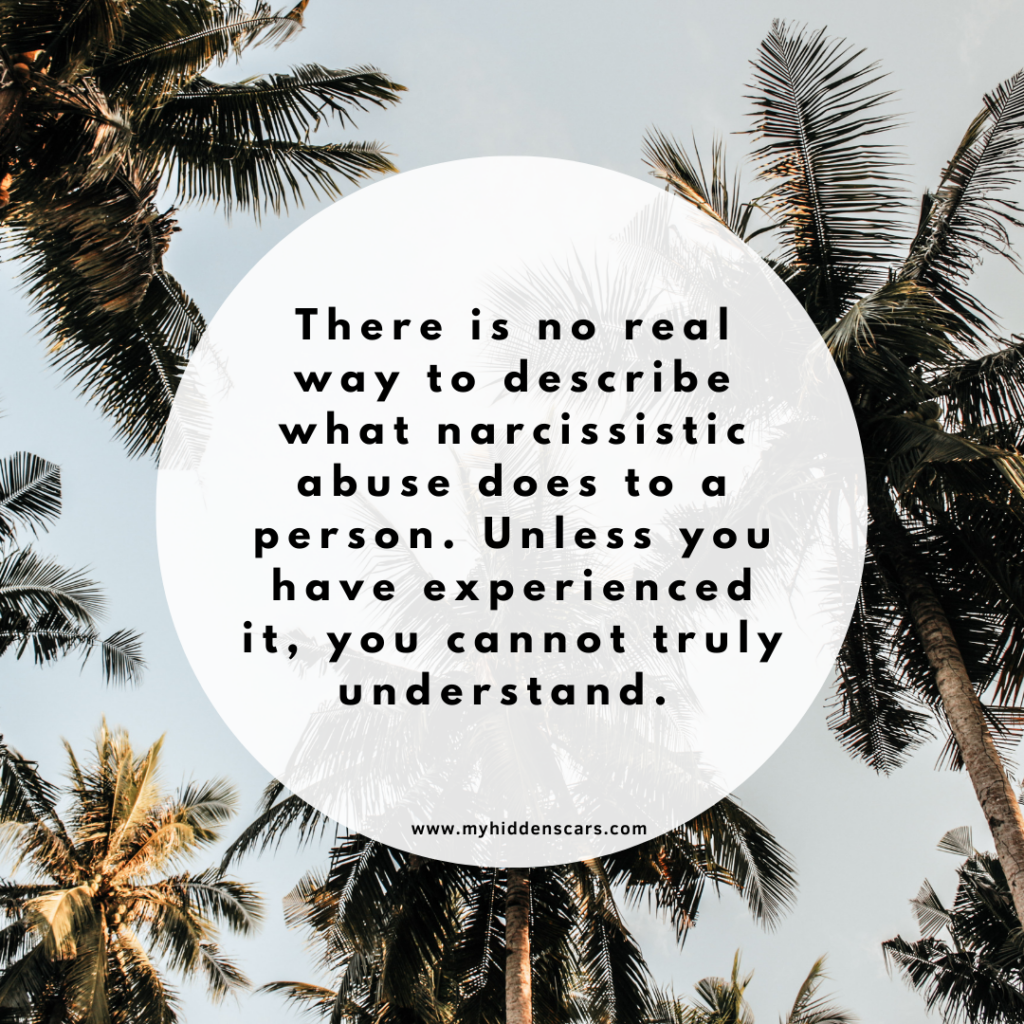Have you ever met someone who acts like they are the most important person in the world and doesn’t seem to care about how others feel? If so, you might have met a malignant narcissist. It’s not just about being vain or selfish – it’s a serious personality disorder that can cause many problems for those around it.
When my therapist first suggested that my ex-husband might be a narcissist, I didn’t believe her. I thought narcissists were just people who loved themselves too much and were really vain. But as she explained more about what it meant to be a narcissist, I started to see that she might be right.
Malignant narcissism is a terrible kind of narcissism that can hurt the people around the person who has it. I’ll explain what makes it different from other narcissism, what behaviors it causes, and how it can affect relationships. By learning about malignant narcissism, you’ll be able to protect yourself and your loved ones from getting hurt by it.
Defining Malignant Narcissism
Malignant narcissism is a kind of personality disorder that has traits of narcissism and antisocial behavior. Although it is not an official diagnosis in the Diagnostic and Statistical Manual of Mental Disorders (DSM), psychologists have studied it since the 1960s. People with malignant narcissism tend to be very self-centered and may use manipulation and abuse. They often lack empathy for others.
While all narcissists have an exaggerated sense of self-importance, malignant narcissists are especially dangerous because they can be insensitive and cruel. They may also have other personality disorder symptoms like aggression, paranoia, and sadistic behavior. Malignant narcissists can be hard to interact with or treat because they often don’t think they have a problem or need help.
Traits And Characteristics
Malignant narcissism is a kind of personality disorder that has traits of narcissism and antisocial behavior. Although it is not an official diagnosis in the Diagnostic and Statistical Manual of Mental Disorders (DSM), it has been studied by psychologists since the 1960s. People with malignant narcissism tend to be very self-centered and may use manipulation and abuse. They often lack empathy for others.
While all narcissists have an exaggerated sense of self-importance, malignant narcissists are especially dangerous because they can be insensitive and cruel. They may also have other personality disorder symptoms like aggression, paranoia, and sadistic behavior. Malignant narcissists can be hard to interact with or treat because they often don’t think they have a problem or need help.
Causes And Origins
Malignant narcissism is caused by a combination of things, including genetics, brain structure and function, and upbringing. Environmental factors like parenting styles and social experiences can play a significant role in shaping a person’s personality and behavior. Children who are either excessively praised or criticized may develop unhealthy self-esteem, which can lead to malignant narcissism. Also, people who have experienced abuse or trauma growing up may develop this severe form of narcissism as a way of coping. It’s important to understand that malignant narcissism is caused by a variety of things, not just one thing.
When I think about my ex and his family, I can see all the signs of him developing a malignant narcissistic personality. His mother and sister are narcissistic. Although I didn’t fully understand narcissism during our marriage, I was always bothered by their need to control things and how they treated people. It was only after I left that I connected the dots. When I consider his genetics and how his family treated him, he really didn’t have a chance of not becoming a narcissist.

Impact On Relationships
Malignant narcissists can be harmful to those around them because they always want to be praised and loved but don’t care much about other people’s feelings. This makes them controlling, manipulative, and potentially abusive to friends, family, partners, and co-workers. Victims of malignant narcissists often experience long-lasting effects on their mental health, such as low self-esteem, anxiety, depression, or even PTSD, due to emotional abuse and manipulation. Malignant narcissists may isolate their victims from support networks like friends and family, making it even harder for them to cope.
Being in a relationship with a malignant narcissist can be really bad for your emotional well-being. Even after you leave the relationship, the effects can last for a long time. For example, you might still struggle with low self-esteem and have PTSD, which can be really debilitating. This kind of abuse can also affect your children, even if they were young when the marriage ended. It’s sad to see them struggle because the courts often don’t recognize or take action against this type of abuse.
Coping Strategies And Seeking Help
Dealing with someone with malignant narcissism can be very difficult because they are controlling and manipulative. One important thing you can do is to set firm boundaries and stick to them, even when they try to push past them. You can do this by telling them clearly what you need and what your limits are, avoiding arguments or debates that feed their ego, and stopping conversations when they become destructive. Remember that you cannot change their behavior, so it is important to focus on your own well-being and emotional health.
Getting support from friends, family members, a therapist, or a coach, like myself can also be helpful. They can provide perspective, guidance, and encouragement when things get tough. Therapy or counseling sessions can also give you tools to cope with the harmful effects of the relationship and help you grow as a person. If the person’s behavior becomes too toxic or harmful to your mental health, it may be necessary to cut ties with them. It’s important to remember that you deserve respect and kindness in all relationships and to prioritize your own well-being over their ego.
Cutting ties with an abusive ex can be hard, especially if you have children together. However, it is important to limit contact as much as possible. You can create a plan that clearly states the days and times for visitation and only contact them through a court-ordered parenting app. This way, you can reduce contact with them and protect your mental health.
Frequently Asked Questions
How Is Malignant Narcissism Different From Other Types Of Narcissism, Such As Vulnerable Or Grandiose Narcissism?
Malignant narcissism is more serious and harmful than other types of narcissism, such as grandiose or vulnerable narcissism. While grandiose and vulnerable narcissists have self-centered behaviors and an inflated sense of importance, malignant narcissists take these traits to a more dangerous level. They have a mix of narcissism, antisocial personality disorder, aggression, and sadistic tendencies. This makes them very self-absorbed, manipulative, dishonest, and potentially dangerous to others. A grandiose narcissist might show off and seek attention, while a vulnerable narcissist might seem unsure and have low self-esteem. It’s important to know how a malignant narcissist can affect relationships and to seek help if you’re dealing with one.
Can Someone With Malignant Narcissism Ever Change Or Improve Their Behavior Through Therapy Or Self-Awareness?
People with malignant narcissism can work on changing their behavior through therapy or becoming more self-aware, but it’s hard work and can take a long time. This is because malignant narcissists have trouble changing since they don’t feel empathy and like to control others. Getting help from a mix of individual therapy, group therapy, and treatments that focus on their negative behaviors could be helpful, but it can be hard to get them to accept that they are the problem. The most important thing for successful treatment is the person’s willingness to think about their actions and how they affect others.
Are There Any Specific Cultural Or Societal Factors That Contribute To The Development Of Malignant Narcissism In Individuals?
Cultural and societal factors can contribute to people developing malignant narcissism. This might happen in very competitive environments, focused on money and things, and encourage people to be very independent and powerful. If someone has experienced bad parenting or been around people who are uncaring, and if others with personality disorders are part of their social circle, this can also encourage these traits. It’s important to remember that while these things might make it more likely for someone to develop malignant narcissism, they don’t mean that they definitely will; people’s personalities are shaped by many different things over time.
How Can Family Members Or Friends Recognize The Early Warning Signs Of Malignant Narcissism In Their Loved Ones?
Family members and friends can recognize early warning signs of malignant narcissism in their loved ones by noticing certain behaviors and traits. These might include being very self-centered, not showing empathy, feeling like they deserve special treatment, trying to manipulate others, being dishonest, and wanting attention all the time. They might also use others for their own benefit, act arrogant or important, and react strongly when criticized. By being aware of these signs, people can identify potential malignant narcissists in their lives and take steps to protect themselves and others from the negative effects of this disorder.

What Steps Can Be Taken By The Community To Raise Awareness And Provide Support For Victims Of Malignant Narcissists?
To help victims of malignant narcissists and spread awareness, the community can organize workshops, events, and campaigns focusing on understanding this disorder’s signs and effects. Working with mental health professionals, schools, and local organizations can help get accurate information out there. Creating safe spaces like support groups or online forums where victims can connect with others who have gone through similar experiences is important for healing and feeling empowered. By doing all of this, communities can work together to reduce the stigma around personality disorders and offer support to those affected by malignant narcissists.
Conclusion
We need to know and understand what malignant narcissism is and how it’s different than other types of narcissism. If we learn more about it, we can recognize the signs that our loved ones might be in trouble with toxic people and help those they are hurting.
We should work together as a society to help people learn about malignant narcissism and provide help for those affected by it. Remember, we can make a change happen, but we need to work together and understand the problem first.



